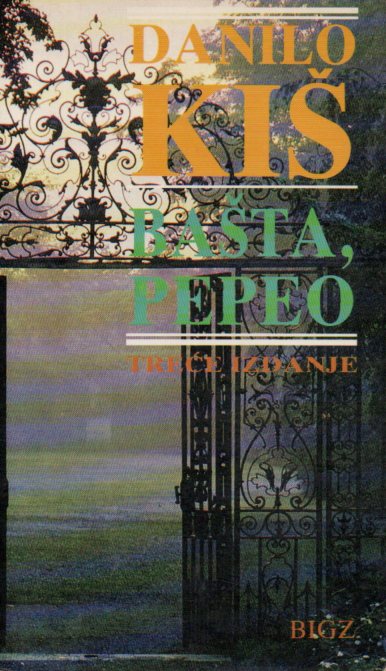Garden, Ashes
Danilo Kiš

The second book from the "Family circus" trilogy, "Garden, Ashes" features a big change in Danilo's writing form. In Psalm 44 we had a more typical and predictable clear structure and plot. Early Sorrows was a collection of short stories but it started to signify Danilo's change in how he portrays the Holocaust way more indirectly in his writing. Now "Garden, Ashes" is the midpoint of where things get weird, and "Hourglass" will be the peak. I think I'll talk about the meanings of this form after I read "Hourglass", because I don't really have the full picture. Instead I'll mention the father-son relationship in this book, which I believe also serves as a parallel for Andreas' (Danilo's) relationship with his jewishness. His mother was montenegrin, his father was jewish, but he was baptised into the Orthodox Christian faith. Ultimately this saved him from being killed during ww2, but it also made him less close to his father. His father thought of himself to be an eternal victim, an Ahašveroš - the Wandering Jew, misunderstood genius. He was an alcoholic, crazed philosopher, flat-footed strange man that was always in and out of Andi's life. The mark he left on Andrija was mainly his frequent dissappearences, along with his final, most impactful one. The war is almost entirely in the background this time, and it can only be observed through brief mentions, posessions being taken away etc. There's no specific plot, it's more of a book full of rambles and ideas and experiences. It reminded me of Proust, although I find Danilo's irony and humor more interesting. I haven't read Proust since high-school though lmao.
